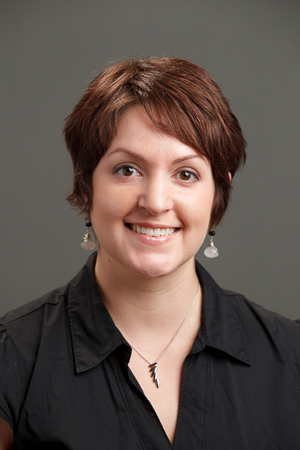Faculty Profile
Dana Somers
Associate Professor of Biology (2013)Contact Information
Rector Science - James Hall
717-254-8131
Bio
I teach classes in genetics, molecular biology, bioinformatics, and microbial fermentation. Research in my lab focuses on microbial genome evolution, particularly as it relates to understanding microbial ecology and biodiversity. We use functional, ecological, and evolutionary genomics to address these basic questions. In one project, my students and I are seeking to understand how climate-mediated changes in lake habitat can influence microbial communities by examining microbial diversity in Arctic lakes, a region where climate change has been particularly rapid. In another project, we are observing the evolutionary dynamics of laboratory domestication in the budding yeast Saccharomyces cerevisiae and the related species S. paradoxus. Finally, a third project seeks to expand our understanding of yeast biodiversity by discovering and characterizing novel species of yeasts.
Education
- B.A., Franklin and Marshall College, 2002
- Ph.D., University of Wisconsin-Madison, 2007
2025-2026 Academic Year
Fall 2025
BIOL 216 Genetics w/Lab
Permission of instructor required.
BCMB 560 Stu/Faculty Collaborative Rsch
Student/Faculty Collaborative Research allows a student to conduct original research in close partnership with faculty collaborator(s). The project should be designed as an investigation yielding novel results that contribute to the area of study. With the faculty collaborator(s), students will develop the project and participate in all aspects fo the reasearch. It is expected that the faculty member will work closely with the student for at least half of the time the student is pursuing the research. The final project must be presented to the faculty collaborator(s) no later than one week prior to the end of the evaluation period. The course will typically earn one half or one full course credit per semester.
BIOL 560 Stu/Faculty Collaborative Rsch
Spring 2026
BCMB 560 Stu/Faculty Collaborative Rsch
Student/Faculty Collaborative Research allows a student to conduct original research in close partnership with faculty collaborator(s). The project should be designed as an investigation yielding novel results that contribute to the area of study. With the faculty collaborator(s), students will develop the project and participate in all aspects fo the reasearch. It is expected that the faculty member will work closely with the student for at least half of the time the student is pursuing the research. The final project must be presented to the faculty collaborator(s) no later than one week prior to the end of the evaluation period. The course will typically earn one half or one full course credit per semester.
BIOL 560 Stu/Faculty Collaborative Rsch
